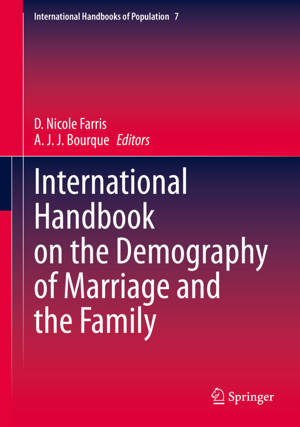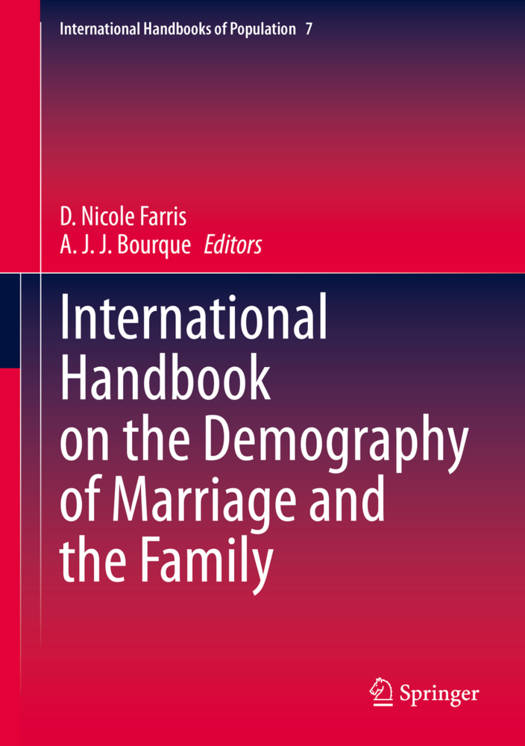
- Retrait gratuit dans votre magasin Club
- 7.000.000 titres dans notre catalogue
- Payer en toute sécurité
- Toujours un magasin près de chez vous
- Retrait gratuit dans votre magasin Club
- 7.000.000 titres dans notre catalogue
- Payer en toute sécurité
- Toujours un magasin près de chez vous
International Handbook on the Demography of Marriage and the Family
Description
This handbook provides a global perspective on contemporary demographic theories and studies of marriage and the family. Inside, readers will find a comprehensive analysis that enables demographic comparison between and across international borders.
Coverage is centered around four main sections that present a history of marriage and the family, detail relevant data and measurement concerns, examine global marriage practices, analyze interactions of such demographic characteristics as age, sex, and race with marriage and the family, and consider public policy, contemporary trends, and future directions. In addition, the book includes research on current social issues such as alternative family structures, cohabitation, divorce, boomerang children, and adoption.
The family is universal but extremely varied in form and function. This handbook provides students, researchers, and policymakers with an all-inclusive, international demographic analysis that fully investigates the diverse nature of the modern family.Spécifications
Parties prenantes
- Editeur:
Contenu
- Nombre de pages :
- 321
- Langue:
- Anglais
- Collection :
- Tome:
- n° 7
Caractéristiques
- EAN:
- 9783030350772
- Date de parution :
- 04-04-20
- Format:
- Livre relié
- Format numérique:
- Genaaid
- Dimensions :
- 193 mm x 259 mm
- Poids :
- 771 g






